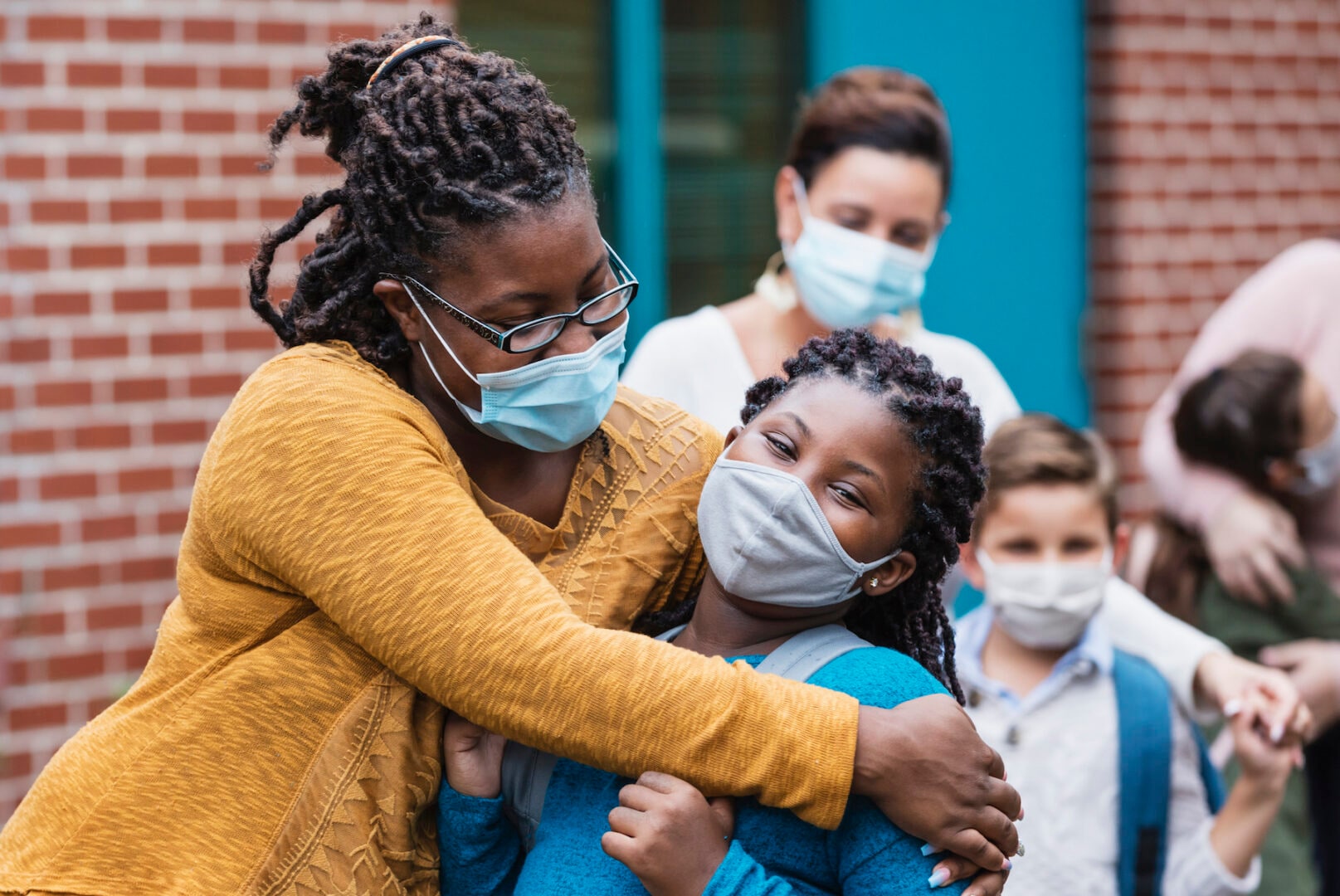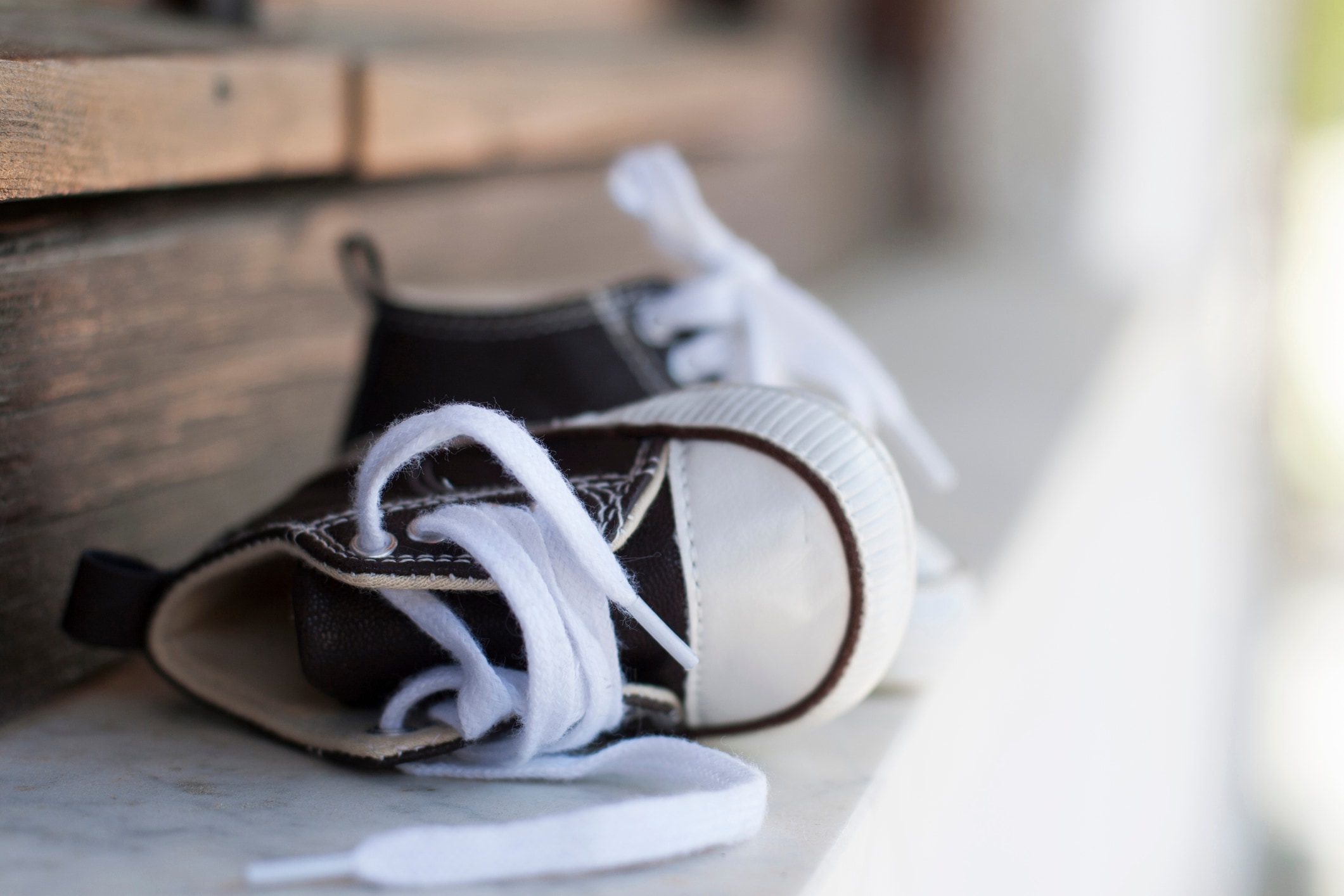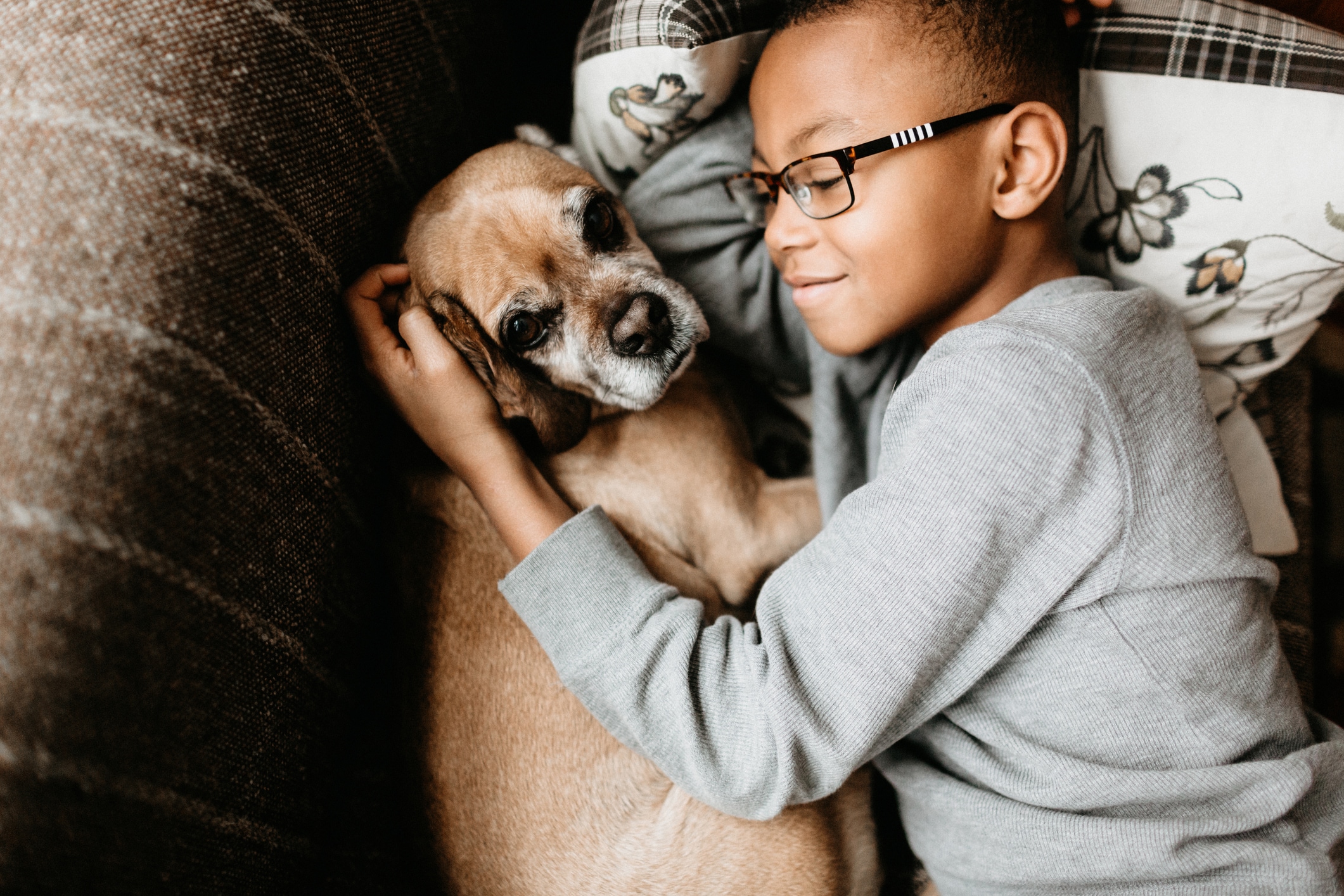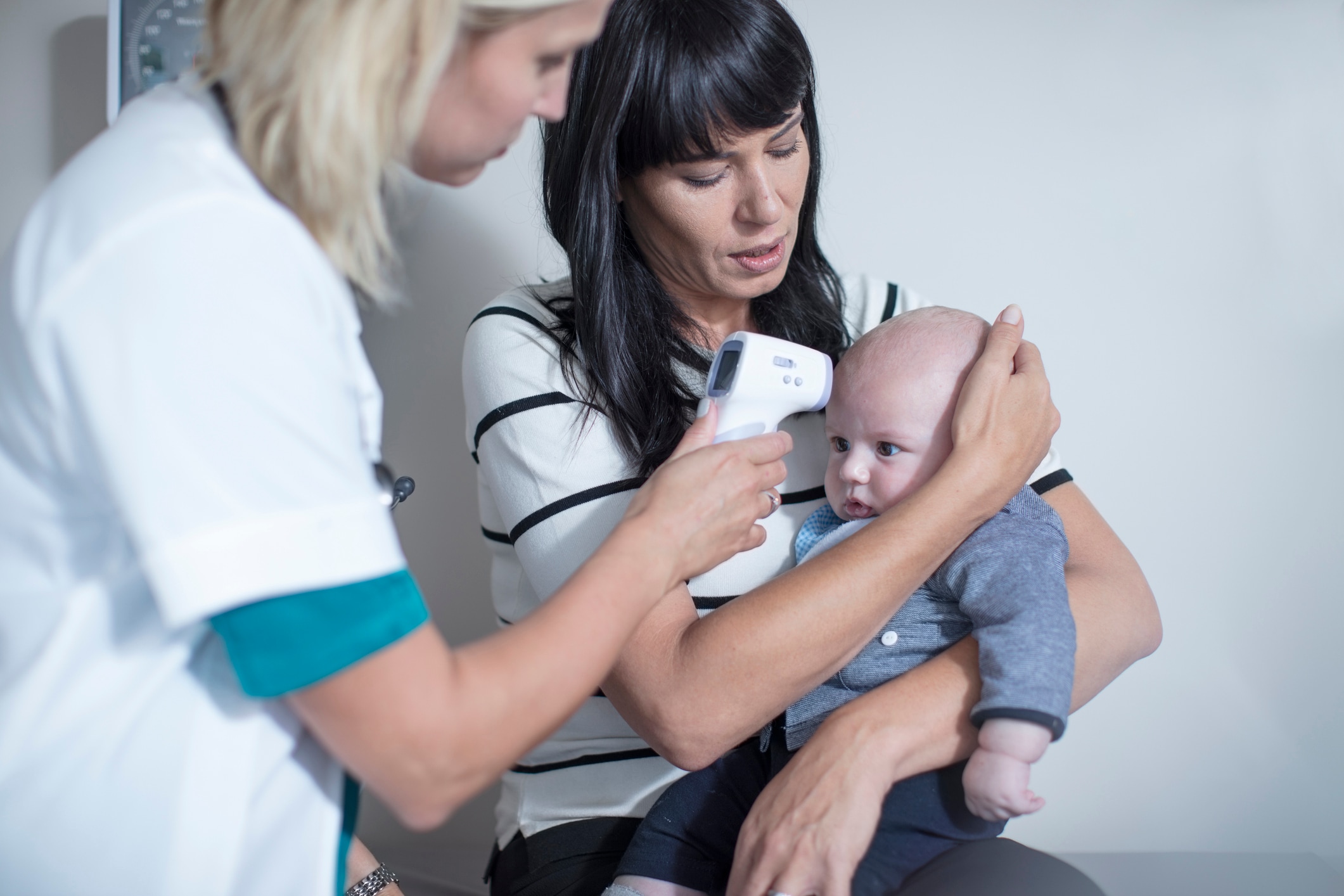After more than a year of crazy schedules, online learning and school closures, many kids are heading back to the classroom for in-person learning. While the threat of COVID variants, including delta, may keep this from being a completely “normal” school year, educators are doing their best to prepare for a great year ahead, and there’s hope that things will run much more smoothly for kids.
No matter what’s in store for the fall, some kids will need extra emotional support and guidance as they transition back into full-time student mode. “It was really a challenging adjustment for children to transition to remote learning,” says Amanda Cummins, a licensed marriage and family therapist with Bridge Counseling in Las Vegas. “I think we can expect this transition will be similar as far as triggering some anxiety and some feelings of uncertainty.”
“It was really a challenging adjustment for children to transition to remote learning. I think we can expect this transition will be similar as far as triggering some anxiety and some feelings of uncertainty.”
— AMANDA CUMMINS, LICENSED MARRIAGE AND FAMILY THERAPIST
To help families as they navigate these feelings and changes during back to school season, we spoke with mental health professionals, education experts and other parents to see how they’re getting ready for the big year ahead.
How to help kids thrive this school year
While kids may be excited and relieved to get back to seeing their teachers and friends every day, parents and caregivers should be prepared for the fact that some kids will need extra support. Here are seven expert-approved strategies to help kids emotionally prepare and adjust through this big transition.
1. Stay connected and check in regularly
Kids don’t always know how to talk about their feelings, and it’s possible for them to need emotional support without ever bringing it up. “There are so many unknowns right now,” says Dr. Tere Linzey, a licensed educational psychologist and the founder of BrainMatterz. “As anxious as parents are, just imagine how anxious the children are. It’s going to be really important that parents are checking in with their children regularly.”
“There are so many unknowns right now. As anxious as parents are, just imagine how anxious the children are.”
— DR. TERE LINZEY, EDUCATIONAL PSYCHOLOGIST
Linzey says check-ins can be done daily or even weekly, and when you do it, you can just ask simple, open-ended questions, like:
- How are you feeling about going back to school?
- What are you excited about?
- What are you worried about?
In addition to needing check-ins, Cummins says some kids may struggle with spending time away from their families after so many months at home. Adding more family time to your normal routine could help.
“Be intentional about scheduling that time,” Cummins says. “It could be doing homework with them so they get that support from you. Maybe it’s scheduling family game nights. Make sure you’re opening up space to have conversations with your child and being a part of their school experience this year.”
2. Reintroduce a routine, but go slowly
“A lot of kids were doing school in their pajamas during the pandemic, and maybe waking up five minutes before class,” Cummins says. “When they’re going back to school in person, they’re going to have to allow themselves quite a bit more time, so I would suggest that parents start a new routine early in preparation.”
How early? Cummins says there’s no perfect time frame, but a month or even a couple of weeks should be enough time to start making changes. Steps to re-establishing a school-focused routine might include:
- Setting a bedtime.
- Preparing supplies.
- Gradually waking up earlier.
- Creating a morning routine.
- Reinstating limits on screen time.
- Attending a back-to-school night to get excited about the year ahead.
3. Let kids take the lead
It’s important for kids to feel confident in themselves, Cummins says. Talking about their feelings and creating new routines together can help with that, but it’s also a good idea to let them call the shots when possible.
Meg St-Esprit, a parent of four from Pittsburgh, says she’s putting extra effort into prioritizing her kids’ needs and comfort as they transition from being home-schooled last year to returning to in-person learning.
“They have very specific ideas about their outfits, haircuts and all of that stuff for the first day, which normally they don’t care about, but we are trying to be as accommodating as we can,” she says. “I also decided to put my twins in the same class, though we had originally planned to split them.”
Parents can’t control everything, but making kids feel seen, heard and accommodated where possible may help them feel more prepared to face the challenges ahead.
4. Work together to rebuild learning confidence
If you or your child are worried their learning progress took a hit during the COVID crisis, you are not alone. A March 2021 teacher survey conducted by Horace Mann showed 97% of educators report learning loss by their students, and 47% cite a wider gap between academically struggling and high-performing students.
“Everybody’s going to be behind,” Linzey says. “It’s more about the teacher having to adjust for the entire class. Kids who have never struggled in the past may start to struggle this year. Parents who’ve been fortunate and their children have kind of breezed through may find that this year it’s more difficult.”
“Everybody’s going to be behind. It’s more about the teacher having to adjust for the entire class. Kids who have never struggled in the past may start to struggle this year.”
— DR. TERE LINZEY, EDUCATIONAL PSYCHOLOGIST
Reading, workbooks and other resources are all good options to help kids rebuild their learning confidence, but Linzey says it’s also critical to focus on retraining basic skills, like focus and memory, that kids haven’t necessarily been using to the same degree during the pandemic.
“If you’re looking at fundamental skills that an athlete needs to be successful, there are fundamental skills for learning as well: How quickly you can take in what you see, how quickly you can take in and hold onto what you hear. Those are all things kids need in a classroom environment,” Linzey says.
Linzey offers courses and specialized tools through BrainMatterZ to help kids train these fundamental skills, but there are also small things parents can do at home, such as:
- Time tests: Time kids on their math facts and let them try to beat their times to help with processing and memorization.
- Categorization: Have kids categorize cards by number, color or the shapes on them as quickly as they can to help fine motor skills and visual processing speed.
- Brain games: Play memory or hidden picture games to help with focus and attention to detail.
Working with an expert like Linzey or hiring a tutor may be especially beneficial for kids who need extra help.
5. Focus on the positives
“Kids are looking to parents as their role models, and kids are like sponges, so they’re absorbing whatever their parents’ responses are,” Cummins says.
“Kids are looking to parents as their role models, and kids are like sponges, so they’re absorbing whatever their parents’ responses are.”
— AMANDA CUMMINS, LICENSED MARRIAGE AND FAMILY THERAPIST
If kids are worried about something, she recommends reframing the conversation in a positive way and helping them feel empowered by reminding them of ways you’re solving the problem together. For example, she says, “Maybe it’s saying, ‘COVID is out there, but we’re sanitizing, we’re washing hands, we’re wearing our masks, and we’re taking all the steps we can to be safe.”
Chaunie Brusie, a parent of five from Detroit, has employed this strategy with her oldest kids, who are anxious about returning to school after a full year of learning online. “There is a lot of anxiety about it all, but the main thing I am reinforcing is that the pandemic has shown us that we have more options than ever before,” she says. “They can go into the school year knowing that we have the ability to choose a remote option again if in person does not work for us.”
6. Practice coping strategies when kids need a reset
The ever-changing status of the pandemic can be frustrating and discouraging for some kids. Lydia Elle, a parent of one from Los Angeles, says her daughter is struggling with the idea of having to mask up for school again following new guidance.
“She has pandemic fatigue, like I’m sure many children do,” Elle says. “It’s not so much anxiety, but just wanting it to be over. The school was very flexible last year, and I’m sure that will continue, but my daughter has ideas of how her school experiences should be, and this has definitely hurt some of it.”
Cummins suggests three different approaches for helping kids work through those difficult feelings:
- Positive reframing: What could go right instead of wrong? “A lot of times our anxiety takes us to the worst-case scenario, but reminding ourselves of what we’re doing right and what our strengths are is a good cognitive exercise,” Cummins says.
- Deep breathing: “Count up to seven, inhale and exhale,” she says. “That really slows your heart rate down. Anxiety amps up all of our physical responses, so that’s a way of bringing things back to a calmer place.”
- Grounding techniques: If something triggers a panic response, try counting down from five using your senses. “‘Ask, ‘What are five things that I can see right now?’ Put all your attention and detail into that,” Cummins says. “And then, ‘What are four things that I can hear right now?’ Keep counting down your other senses from there.”
“A lot of times our anxiety takes us to the worst-case scenario, but reminding ourselves of what we’re doing right and what our strengths are is a good cognitive exercise.”
— AMANDA CUMMINS, LICENSED MARRIAGE AND FAMILY THERAPIST
7. Ask for help when you need it
Experts and parents agree that mental health needs to be on every parent’s radar this year. “Our kids have lived through a trauma, and they might react in ways we don’t expect or process things in ways that don’t make sense to us as adults, but are totally valid,” St-Esprit says of parenting during the pandemic. “I expect more meltdowns, more attitude and more instances of having to hold my tongue and realize they’re not just ‘being a brat,’ but are processing a terrible year where kids were not prioritized.”
Cummins says it’s normal for some stress, anxiety and sadness to surface, but parents should be prepared to seek support from a mental health professional if they notice any of the following:
- Increased isolation or social anxiety.
- Declining grades.
- Missing school assignments or other deadlines.
- Irritability or extreme behavior changes.
- Loss of interest in normal activities.
A therapist can be a great support for kids, but Cummins says to also tap into their support system at school. “That might be their teachers, school guidance counselors, school social workers or anybody else who can help them feel a little bit more confident,” she says. “It’s important for them to feel like, ‘OK, I know I have someone that I can turn to if I’m struggling.’”





